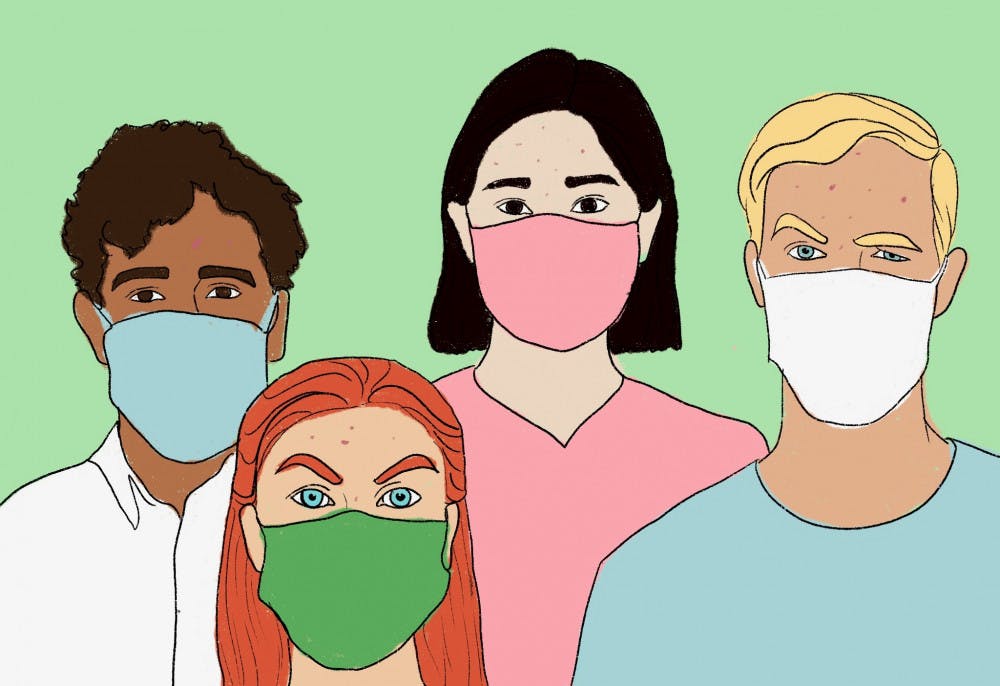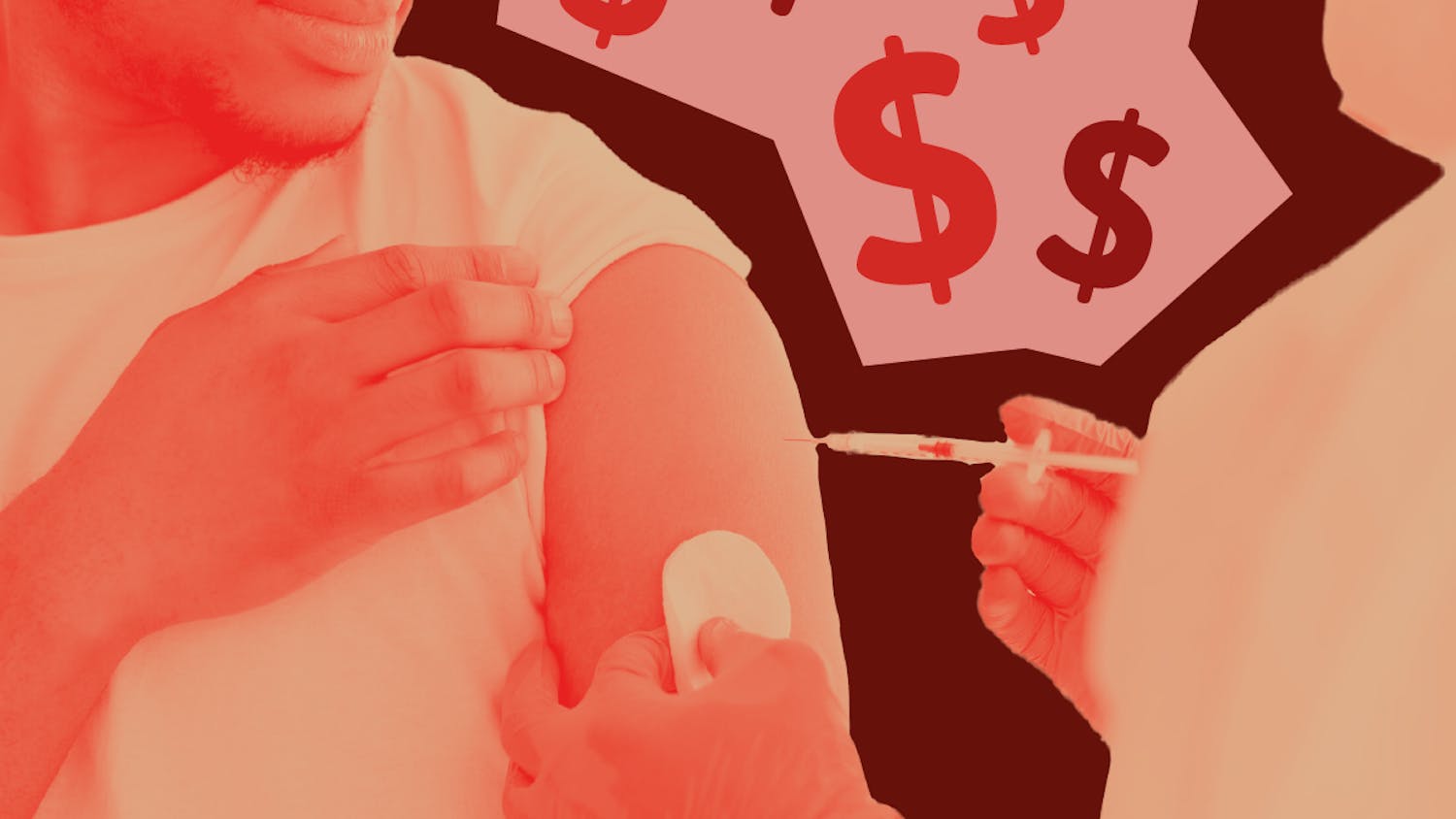The COVID-19 pandemic has created plenty of everyday problems, like having to decide to order takeout for the fifth time this week, struggling to choose which show to binge and — most irritatingly — “maskne.”
Mask acne, or maskne, refers to skin impurities caused by the friction and rubbing in one’s mask, said Dr. Marjorie Montanez-Wiscovich, a clinical assistant professor at UF’s College of Medicine.
The now Instagram-famous affliction is a special type of acne called acne mechanica. The same condition occurs under sports players’ helmets, Montanez-Wiscovich said. It can be prevented by frequently washing cloth face masks and changing disposable masks often.
Oil control face wash brands like Neutrogena oil-free acne wash and Cetaphil oil control wash can be used to prevent oil accumulation and mask acne, she said. Some of her patients have also benefited from using sulfur-based soaps.
If those initial measures are not helpful, she said people can consider using acne treatment products containing benzoyl peroxide or glycolic acid. She said wipes with these ingredients are available online and at stores like Sephora.
“All of them revolve around keeping the skin clean,” she said.
As for makeup, Montanez-Wiscovich said people who wear it can try taking a break if they’re getting rashes under their masks.
The placement of a mask can also cause maskne. Some masks rest at the chin and others rest below it; if a breakout occurs in one of those areas, she said to try the alternative.
“It’s mostly a friction problem,” she said. “For the masks to be effective, they have to fit well.”
Face shields are an even better way to prevent maskne, she said, because they don’t touch the face but still protect from COVID-19. Montanez-Wiscovich encouraged and recommended that people still wear masks even if they’re breaking out.
People who follow these recommendations and still have issues might just be using the wrong mask.
Dr. Richard Sadove, a Gainesville-based plastic surgeon at Sadove Plastic Surgery, said some masks are more likely to irritate you than others. He has been exposed to many types of medical masks as a surgeon, and said people experiencing maskne should explore the many alternative brands.
For those wearing face coverings instead, Sadove said it’s best to choose a soft, cotton mask.
People prone to dry skin should use an oil-based moisturizer before they put their mask on, and people with a history of acne and eczema can use cold compresses to reduce inflammation, Sadove said. Using aloe-based toners and moisturizers before putting on a mask can help prevent irritation, while fragrant and scented cleansers should be avoided.
At the end of the day, most people should put on a clean mask after wearing it three times and face coverings should be washed overnight, he said. Using spray alcohol on a mask and letting it dry before use is an additional measure that can be taken for cleanliness.
Everyone’s body is different and people should adjust their routine accordingly, Sadove said.
Izzie Brownandia, a 21-year-old UF anthropology alumna, did just that. She has had acne since she was about 12, and said she’s prone to breaking out whenever anything touches her skin — she doesn’t even wear glasses.
She has, however, personalized her mask regimen.
Brownandia used disposable masks at first because it kept her acne a little lower, but said she switched to cloth masks to her own detriment to be more eco-friendly. She has been washing her cloth masks but said if she doesn’t delicately wash them by hand, they build up lint and begin to look worn. She tries to wash them at least a couple of times a week.
One of her personal strategies is making sure to take her mask entirely off her face when she’s eating instead of leaving it below her chin, where it can collect food and create irritation later.
“I’m just trying to have the proper, extra vigilant mask etiquette along with the cleaning I need to do in between,” she said.
While the concern for maskne remains, Brownandia said wearing a mask comes with an unexpected perk.
She used to get “unsolicited advice” about her skin from work clients and friends, but said she doesn’t get any comments while wearing a mask. The downside is when she goes home, she still has to deal with pain and her skincare routine.
She has combatted the negativity by seeing a dermatologist. Since it’s “mask season,” and her skin can heal while no one sees her face, she said it was a good time for her to seek professional help for her skin.
“Hopefully, when this is all over, I have a brand-new, fresh face to show everybody,” she said.
Mask acne, or maskne, refers to skin impurities caused by the friction and rubbing in one’s mask, said Dr. Marjorie Montanez-Wiscovich, a clinical assistant professor at UF’s College of Medicine.






